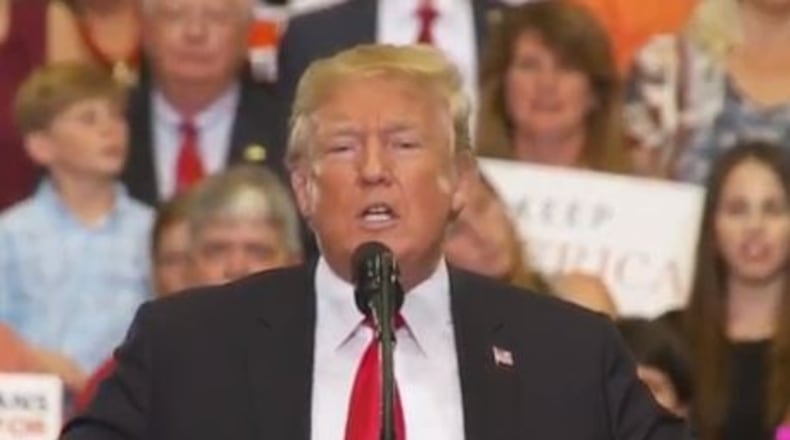"Does he rule out ever issuing a pardon for himself?" one reporter asked.
"Once again, the President hasn't done anything wrong, and we feel very comfortable on that front," Sanders added.
Asked later if she believed the President was "above the law," Sanders said no.
"Certainly, no one is above the law."
The questions and answers came hours after the President had again denounced the investigation into ties between Russia and the Trump Campaign in 2016, as Mr. Trump took to Twitter on Monday to charge that the probe is flatly unconstitutional.
In Congress, Democrats denounced the President's claim in no uncertain terms, as Senate Democratic Leader Charles Schumer called the President's tweets "silly, farcical, and absurd."
"This is a frightening and false statement. Nobody - not even the president - is above the law," said Rep. Emmanuel Cleaver (D-MO).
"All the tweeting in the world will not change the fact that the President is not above the law," said Sen. Jeanne Shaheen (D-NH).
"These attacks on the Special Counsel and sweeping claims of presidential power are harmful to the rule of law," said Sen. Chris Coons (D-DE).
"I have one message for the President," said Rep. Raul Grijalva (D-AZ). "Nobody is above the law."
"No one is above the law. Not even you," said Rep. Yvette Clarke (D-NY).
The theory was advanced by President Nixon in the final days of Watergate, and even after he resigned from office.
"No one is above the law," said Rep. Lacy Clay (D-MO). "Richard Nixon learned that hard lesson."
About the Author
